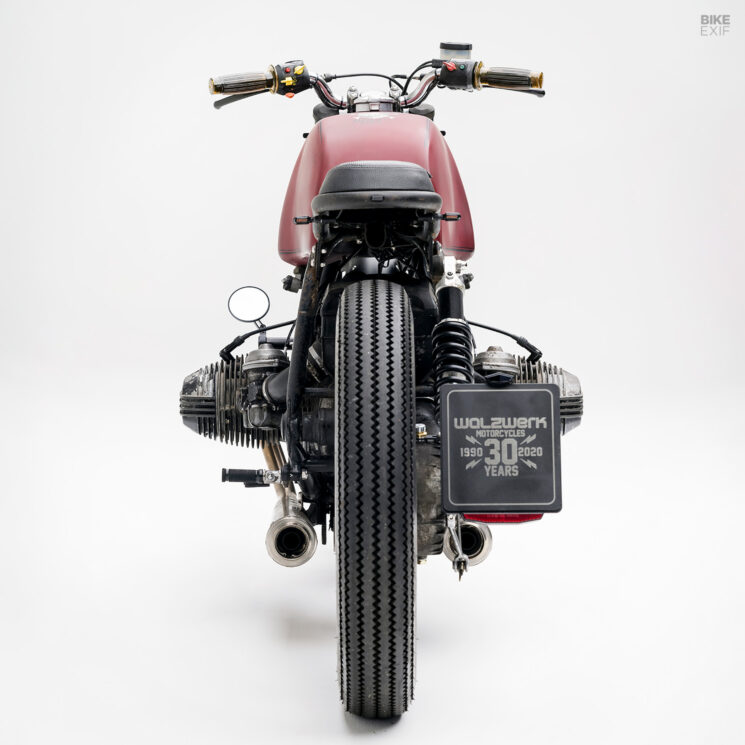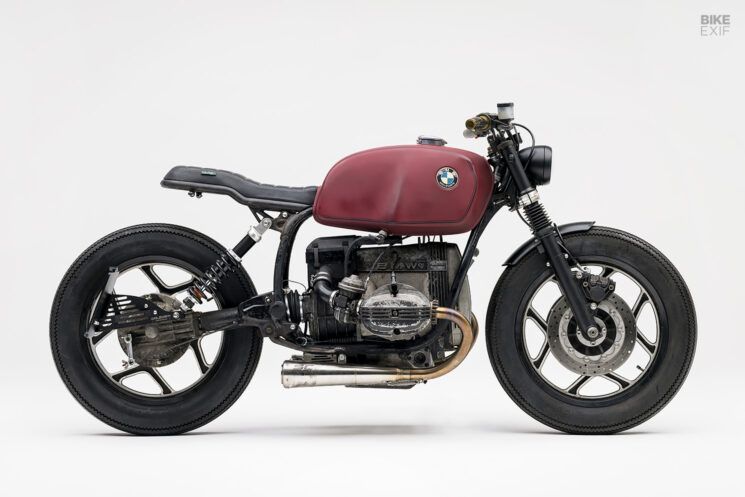
Marcus Walz made his bones building extreme choppers in the 90s. But as the new wave café racer scene blossomed, the founder of WalzWerk Motorcycles pivoted towards more contemporary custom build styles. WalzWerk now builds around 100 motorcycles a year—and at least 80 of those are classic BMW boxers.
That sort of output demands a steady stream of donor bikes, so the WalzWerk crew is always on the hunt for suitable candidates. “We buy around 120 BMW R80 and R100 Monolever models a year,” says Marcus, “The majority come from relatives, heirs, and survivors—and almost every one of them has a personal, and often tragic, story behind it.”
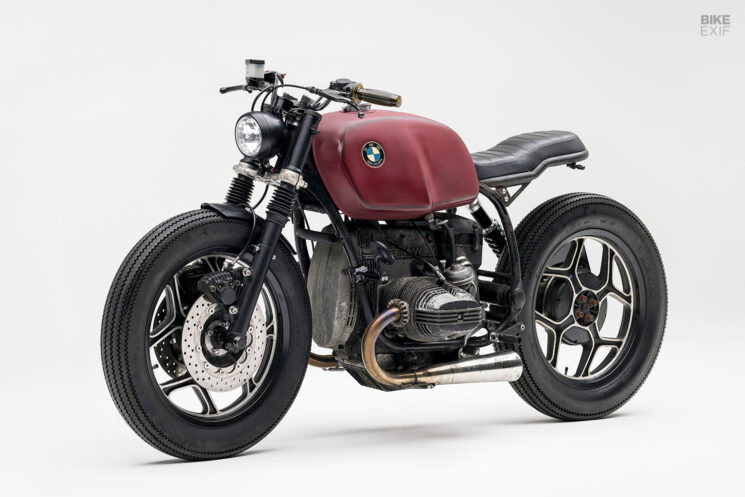
The history of this 1987 BMW R80 was so compelling that, once he’d heard it, Marcus decided to keep the bike for himself. The idea was to customize it according to WalzWerk’s popular ‘Schizzo’ template—but to keep as much of the original patina intact as possible as a nod to its provenance.
The story goes that the BMW R80’s sole owner, ‘Mr. H,’ bought it in 1987 from a BMW dealer in Hamburg. At the time, you could spec the R80 with a second front disc brake, a windshield, and a set of Krauser cases; Mr. H ordered just the cases and immediately put the bike to work. Over the next 30 years, he and his wife racked up over 300,000 km [about 186,400 miles] on countless trips across Europe.
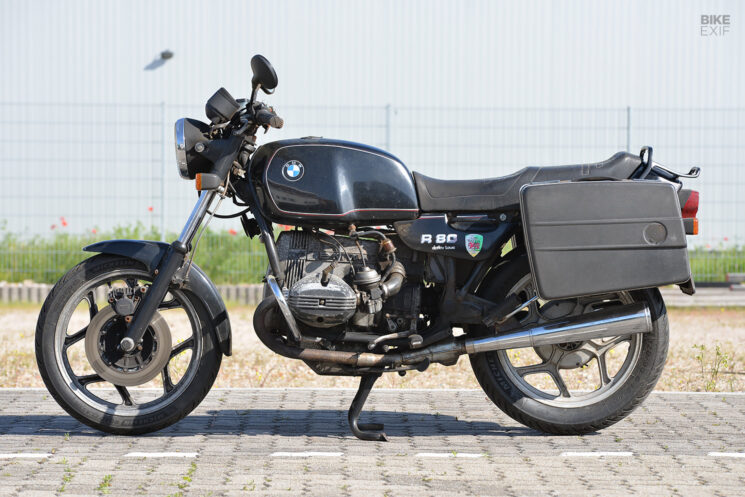
After Mr. H passed away, his wife mothballed the BMW—dragging it out of the garage only once so that a local motorcycle dealer could put it through a TÜV inspection. When Mrs. H died last year, ownership of the BMW went to their daughter, who decided to sell it to WalzWerk.
“When we picked up the BMW,” Marcus tells us, “their daughter visibly struggled to part with it and shed a lot of tears. Together with the motorcycle, she also handed us a folder full of information, with countless workshop and TÜV receipts, which documented every single kilometer of the machine.”
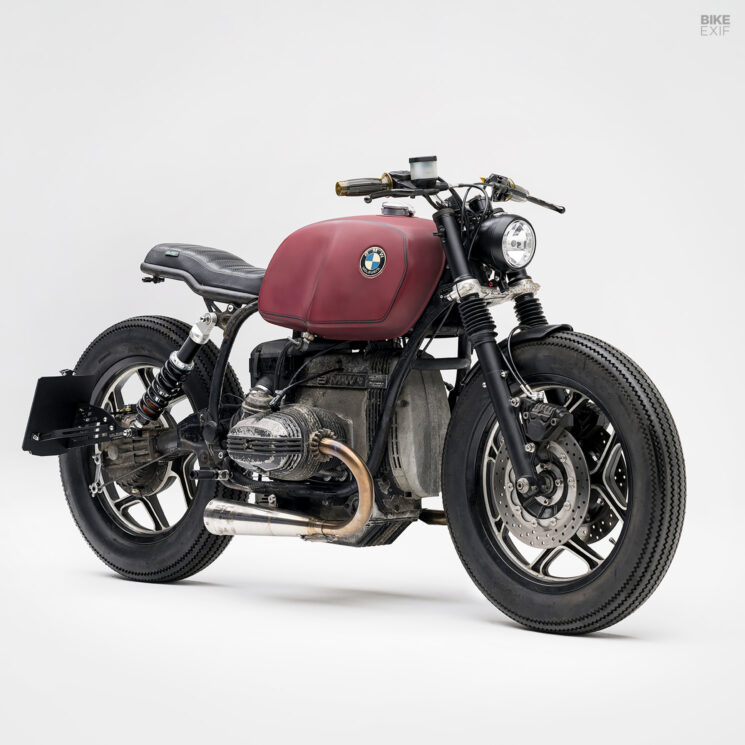
“The reason that she offered her parents’ motorcycle to us was because she liked the idea of it practically becoming a new motorcycle—a kind of rebirth, as she put it. We liked this idea too, and decided to continue writing the history of this BMW.”
WalzWerk’s Schizzo BMWs are ground-up rebuilds that leave no bolt untouched. That sort of approach is usually at odds with the idea of a building patina-laden machine, but Marcus has managed to pull it off here. For example, although the engine, transmission, and final drive look battered on the outside, they’ve all been torn apart and rebuilt on the inside.
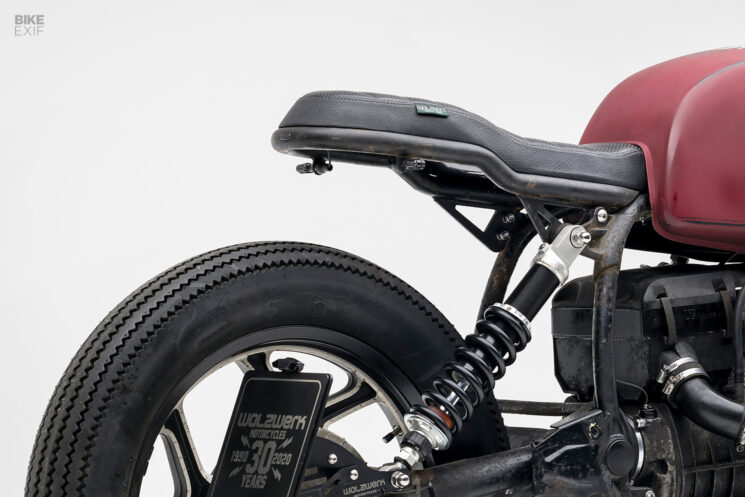
WalzWerk also made the requisite frame mods without repainting the original frame. Then they bolted on one of their Schizzo subframes, finishing it with a worn look so that it wouldn’t look out of place on the otherwise aged bike. A slim saddle sits up top.
Next, the team shortened and rebuilt the front forks, and fitted a neat little front fender. They also added a second disc brake to the front, using a vintage Brembo caliper to match the stock unit. A new YSS shock does duty out back, while chunky Firestone Deluxe Champions wrap around the original BMW rims.
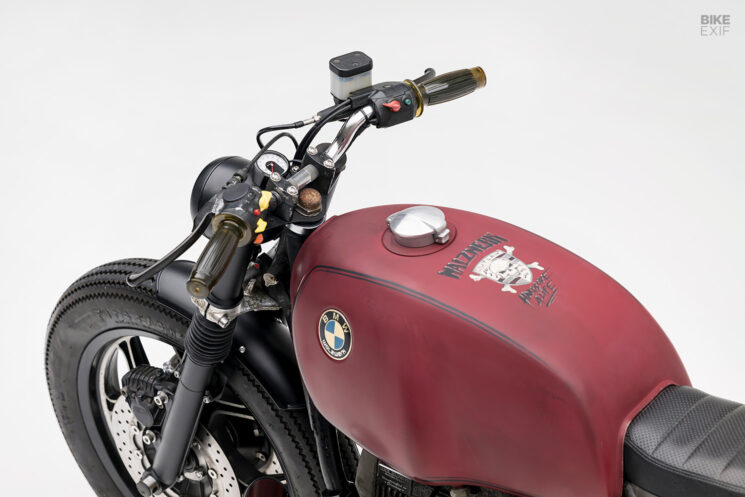
The cockpit is a judicious mix of old and new. Marcus kept the OEM handlebars, clamps, and switchgear, but replaced the grips and installed a brand-new Motogadget speedo. The headlight is new too, as are the custom-made fork sleeves that host a pair of tiny LED turn signals.
Three-in-one LEDs handle taillight and turn signal duties out back, while a WalzWerk license plate bracket attaches to the lower shock mount.
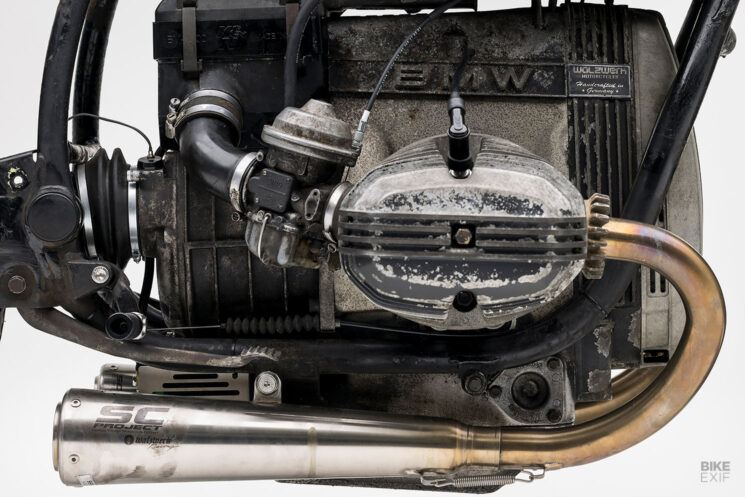
WalzWerk built a fresh wiring loom for the R80 with a Motogadget controller, then installed a Lithium-ion battery, tucking it away in one of their signature battery boxes under the transmission. Finishing touches include a pair of custom headers and slightly blemished SC-Project cans, and WalzWerk engine badges that have been scuffed up to look as old as the bike they adorn.
“The main goal and the most difficult thing was to keep and preserve the true and unique patina which the bike has more than enough of,” Marcus adds. “There are so many things on that bike that tell the story of more than three decades, and it would have been a shame to destroy all this.”
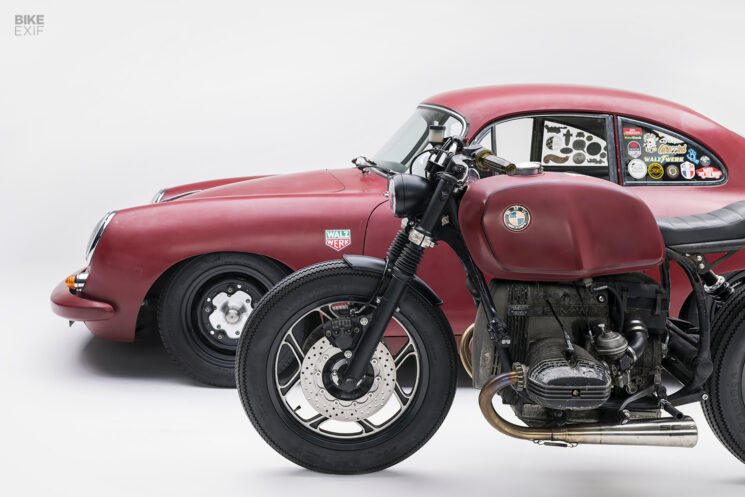
One part that Marcus couldn’t save was the BMW R80’s fuel tank, which was rusted beyond reason. So he used a fuel tank from another boxer, painting it to match his 1959 Porsche 356 survivor.
“My 356 has almost the same history as the bike,” he says. “It’s still in its original color and has never been restored.”
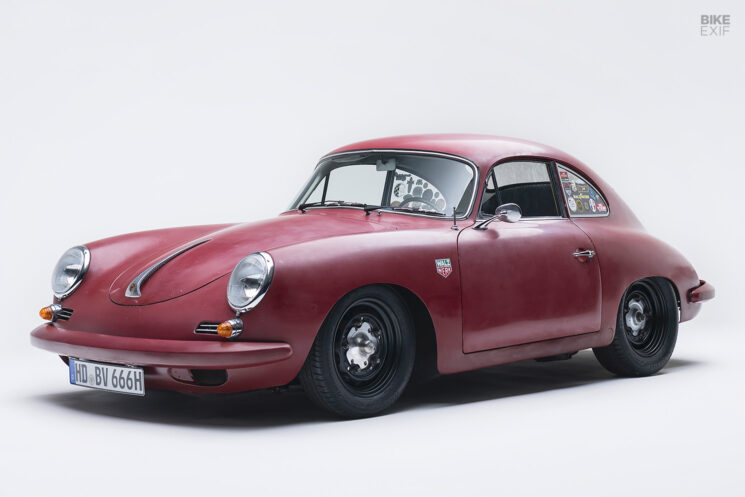
“I bought the car in California a few years ago from the heirs of its first owner. I kept the original patina and rebuilt all the technical parts like the suspension, brakes, gearbox, and engine, without destroying the patina. Today the car runs like new and is the star at every vintage car show—especially when I park the BMW next to it.”
WalzWerk Motorcycles | Facebook | Instagram
